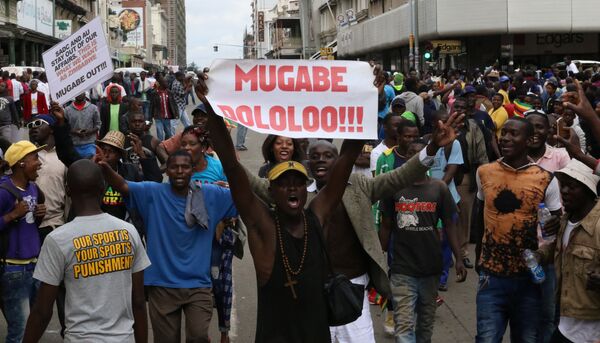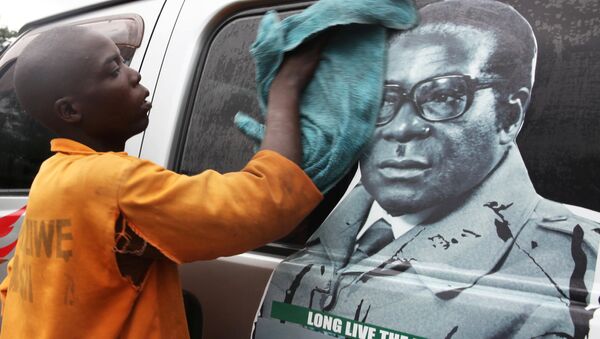Anthoni van Nieuwkerk: Dictators who rule a country continuously almost for 40 years are hardly going to hand over power willingly — it's in the genetic makeup and the psychology of President Mugabe not to be pushed out any time soon. It's also the fact that he enjoys support from a significant pocket inside the ruling party and amongst the security forces. His popularity is dwindling very fast, but if he put these two sectors together the situation that we face now is a very reluctant [Mugabe]. What happens to him and his family if he does step down? The Mugabe family is very controversial. They've got two young boys using a lot of money playing sort of games at Universities and his wife recently visited South Africa where there was a domestic altercation. She stands accused of assault charges. If the Mugabe family decides to leave Zimbabwe and comes and rests in South Africa, they would face legal action. If President Mugabe retires he might face international calls for action to have him arrested and held and be brought to court on charges relating to genocide, that's why I think he is making his balancing the risks and he has decided to stay a little bit longer.
READ MORE: Mugabe Reportedly Agrees to Step Down as Zimbabwe's President
Sputnik: Think the international tribunal or international court is the actual case to go?
Anthoni van Nieuwkerk: A massacre or genocide still needs to be uncovered and justice needs to be done, regardless of whether he is 93 or 94. It's not as if his job will be taken over by a democrat. The man who is slated to replace him, Emmerson Mnangagwa, has a similar cloud hanging over his head — involvement in violence in the past. It's a bit of a tricky situation, I don't think that we should be fixated with Mugabe's immediate future. We should rather ask the question what kind of transitional arrangement can be made for this country to actually emerge out of the crisis.

Sputnik: What kind of measures are those? How bad is the situation in Zimbabwe right now?
Anthoni van Nieuwkerk: It is not the situation where there is violence in the streets. Tens of thousands of citizens came together and celebrated the end of the Mugabe era. If Mugabe stays on, temperatures might go up with popular uprisings. It is very difficult to predict the mood of the crowd from one day to the next. And then the army or the military will be forced to intervene and that is a situation that might lead to a real crisis.
Army tank escorts Zimbabweans protesting in Harare. This is so beautiful. pic.twitter.com/fQUoYNTDfg
— ubuntugraphy.com🇿🇼 (@ubuntugraphy) 18 ноября 2017 г.
Sputnik: Do you think Emmerson Mnangagwa could actually win the election if there was to be one?
Anthoni van Nieuwkerk: He will probably take over from Mugabe as the president of the ruling party and then going to an election to become a newly elected, democratically elected president of the country. The opposition is really fractured being beaten up over many-many years. If you think about this, a section of the security forces which is the army, the military, not the police, intervening to get rid of elements of the ruling party and to put in place another faction of the ruling party. It's a delayed half-coup, not a full on military takeover of all of government. Zanu-PF, the ruling party will come out at the ever end still in control of the country.




